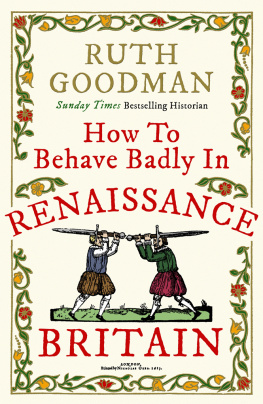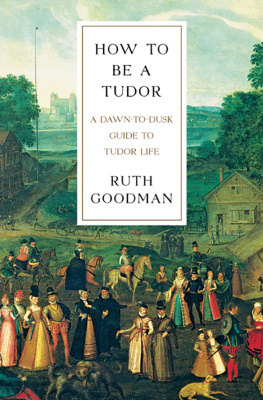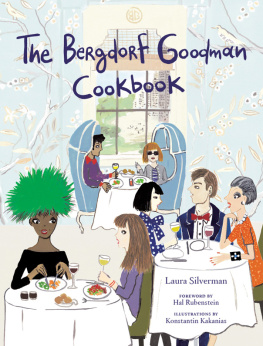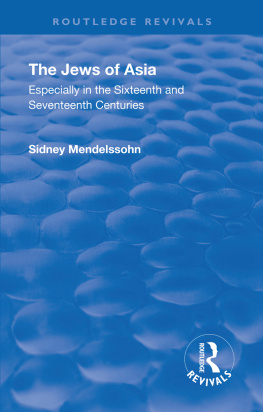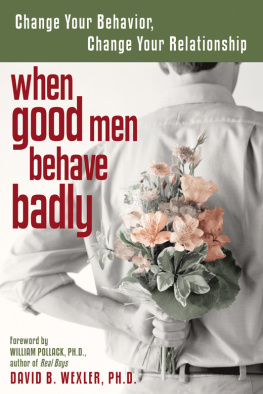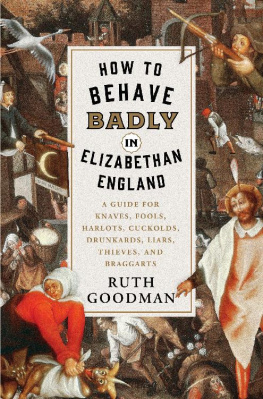Goodman - How to Behave Badly in Renaissance Britain
Here you can read online Goodman - How to Behave Badly in Renaissance Britain full text of the book (entire story) in english for free. Download pdf and epub, get meaning, cover and reviews about this ebook. City: London;England, year: 2018, publisher: Michael OMara Books, genre: Religion. Description of the work, (preface) as well as reviews are available. Best literature library LitArk.com created for fans of good reading and offers a wide selection of genres:
Romance novel
Science fiction
Adventure
Detective
Science
History
Home and family
Prose
Art
Politics
Computer
Non-fiction
Religion
Business
Children
Humor
Choose a favorite category and find really read worthwhile books. Enjoy immersion in the world of imagination, feel the emotions of the characters or learn something new for yourself, make an fascinating discovery.
How to Behave Badly in Renaissance Britain: summary, description and annotation
We offer to read an annotation, description, summary or preface (depends on what the author of the book "How to Behave Badly in Renaissance Britain" wrote himself). If you haven't found the necessary information about the book — write in the comments, we will try to find it.
How to Behave Badly in Renaissance Britain — read online for free the complete book (whole text) full work
Below is the text of the book, divided by pages. System saving the place of the last page read, allows you to conveniently read the book "How to Behave Badly in Renaissance Britain" online for free, without having to search again every time where you left off. Put a bookmark, and you can go to the page where you finished reading at any time.
Font size:
Interval:
Bookmark:
PRAISE FOR HOW TO BE A TUDOR
This book is packed with delicious kernels of knowledge... all served up by the most delightfully eccentric author Ive ever encountered.
The Times
Always entertaining, and her narrative is often lifted by the fact that she has taken the trouble to experience many of the alien aspects of Tudor life.
Observer
Goodmans latest foray into immersive history is a revelation... Its the next best thing to being there.
New York Times Book Review
A deeply researched and endlessly fascinating account of what it was like to live as a Tudor. The narrative is rich in period detail and based upon a thorough review of the contemporary sources, but what makes it unique is the fact that Goodman has put it all into practice sleeping, eating, washing and dressing like a Tudor. [It] is one of very few books which can justifiably claim to bring every aspect of this enduringly popular period dazzlingly to life.
Tracy Borman
[Goodmans] enthusiasm is exhilarating and contagious.
Kate Tuttle, Boston Globe
Riveting. This is a real peoples history that takes us straight into the sensate feelings of ordinary life the feel, touch, smells and labour of people living five centuries ago, giving an earthy reality to our enduring fascination with the Tudors.
Juliet Gardiner
PRAISE FOR HOW TO BE A VICTORIAN
I absolutely love this book. Exuberant, absorbing.
A. N. Wilson, Mail on Sunday
Ruth a woman who possesses so much elbow grease that she could probably can the overflow to sell on the side.
Independent
Written with such passion that one cannot help but be carried along... Will fascinate and inform anyone who is in any way interested in Victorian ways of life.
Ian Mortimer
Makes you feel as if you could pass as a native.
New Yorker
If the past is a foreign country because they do things differently there, were lucky to have such a knowledgeable cicerone as Ruth Goodman.
Wall Street Journal

First published in Great Britain in 2018 by
Michael OMara Books Limited
9 Lion Yard
Tremadoc Road
London SW4 7NQ
Copyright Ruth Goodman 2018
All rights reserved. You may not copy, store, distribute, transmit, reproduce or otherwise make available this publication (or any part of it) in any form, or by any means (electronic, digital, optical, mechanical, photocopying, recording or otherwise), without prior written permission of the publisher. Any person who does any unauthorized act in relation to this publication may be liable to criminal prosecution and civil claims for damages.
A CIP catalogue record for this book is available from the British Library.
ISBN: 978-1-78243-849-6 in hardback print format
ISBN: 978-1-78243-852-6 in ebook format
www.mombooks.com
Cover design by Estuary English
Jacket image reproduced by kind permission of the Raymond J. Lord
Collection of Historical Combat Treatises
Author photo Mark Goodman
Every reasonable effort has been made to acknowledge all copyright holders. Any errors or omissions that may have occurred are inadvertent, and anyone with any copyright queries is invited to write to the publisher, so that full acknowledgement may be included in subsequent editions of the work.
CONTENTS

Welcome to a century of bad behaviour. Forget the tales of the great and the good: this is a history of flawed and imperfect people. People whose misdemeanours lead us deeper into their world, as they show us the way that they carved out a life for themselves and reveal some of the thoughts and feelings that made them tick.
For behind the much vaunted gloss of ruffs and shimmering silks, the deeply committed religious reformers, the political visionaries and the great literary figures of the years between 1550 and 1660 lurks the rest of humanity and human experience in all its grubby glory and tarnished glister. Sixteenth- and seventeenth-century England was a place of vitality, experimentation, expanding horizons and lots of small-minded, petty, badly mannered, irritating and irreverent oiks, guls, gallants and harridans. And I love them all.
Every age and every social stratum has its bad eggs, those who break the rules and rub everyone up the wrong way. People who behave like square pegs in round holes abound in history just as much as in contemporary life. There are people who genuinely dont understand the social conventions of their day, who struggle to follow the subtleties and unwritten rules that govern daily life, and then there are those who deliberately and knowingly flout all codes of conduct. Sometimes the flouters act alone as rebellious individuals, ploughing their own furrow, like Mary Frith who smoked, drank, swaggered and wore mens breeches in public on a regular basis, both shocking and intriguing her fellow citizens. Sometimes people join together in their rule breaking as an act of defiance and seek to forge their own separate group identity, like the idle, arrogant youths of the Damned Crew who drank, fought and bullied their way around the capital, or the holier than thou hotter sort of Protestants, who irritated their neighbours secure in their own sense of superiority. Some navigate their way around and between the rules for their own ends, and others are tossed into transgression by circumstances. The subversion of normal rules can have many causes and many motivations. But the rules are the rules.
Societies in all times and all places are governed by intricate, overlapping codes of conduct. Some of these rules are both open and explicit in the manner of legal pronouncements or formal regulations; others stem from religious beliefs and understandings that can have a more nebulous edge, sliding into the realms of unexplained taboo. Still more grow from allegedly factual interpretations of the world around us that designate certain behaviours right and natural and others perverted and strange. Some have long lost their rationale entirely but persist as part of widely held traditions, rules that demand obedience because we have always done it like that. Many are implied or understood rather than formally spelt out, learnt from the reactions of family, neighbours, colleagues, enemies and friends. They cover every form of social interaction, from hanging out the washing in a communal yard to drinking with mates in the alehouse. The most socially aware and adept individuals can take all these interwoven, and occasionally conflicting, rules and turn them into a seamless performance of confidence and belonging at least some of the time. For historically, just as now, many people struggled to pull it off, to behave perfectly at every encounter and in every situation.
I have a sneaking sympathy for all of them: for the blithely clueless bumbling through the disapproving looks; the acutely embarrassed who would conform if only they knew how; the deliberately curmudgeonly who define themselves by their resistance; the makers of new rules who seek to change the world; the calculating social climbers who pick and choose when to be good and when to be bad; the furiously angry who have gone beyond all care and restraint; the comedians poking fun and the downright mischievous who just cant resist giving the world a little stir.
This is a book for, and about, all of them. It is an exploration of the written and unwritten rules of Tudor and Stuart England, and how people went about breaking them. It is not a history of criminal behaviour as such, although some of the activities in this book will edge into the legally dubious; rather it is a study of all the niggling, antisocial, irritating ways that people used to kick against prevailing social mores. And because the offence and the meaning is all contained within the specific details of these behaviours, you will find, too, within these pages, step-by-step instructions that lay out exactly how to be that annoying and irritating person. We shall rehearse the various ways in which you could embarrass your parents, mock a sober clergyman, disgust your dinner guests and put down your enemies. There are instructions for fighting in various styles so that you can hold your own against the city watch, or at least intimidate the uninitiated into letting you have your way. There are crib sheets of verbal insults outlining the vocabulary but also providing you with a key so that you can extemporize upon certain themes and customize your linguistic attacks to suit the occasion. You will find pointers about sartorial inelegance in several forms that could cause terrible worry to stuffy parents, and also diagrams of rude gestures to assist you in performing them with accuracy for maximum impact. It is a sort of basic tool kit for navigating your way around the edges of society and sliding between the gaps.
Next pageFont size:
Interval:
Bookmark:
Similar books «How to Behave Badly in Renaissance Britain»
Look at similar books to How to Behave Badly in Renaissance Britain. We have selected literature similar in name and meaning in the hope of providing readers with more options to find new, interesting, not yet read works.
Discussion, reviews of the book How to Behave Badly in Renaissance Britain and just readers' own opinions. Leave your comments, write what you think about the work, its meaning or the main characters. Specify what exactly you liked and what you didn't like, and why you think so.

